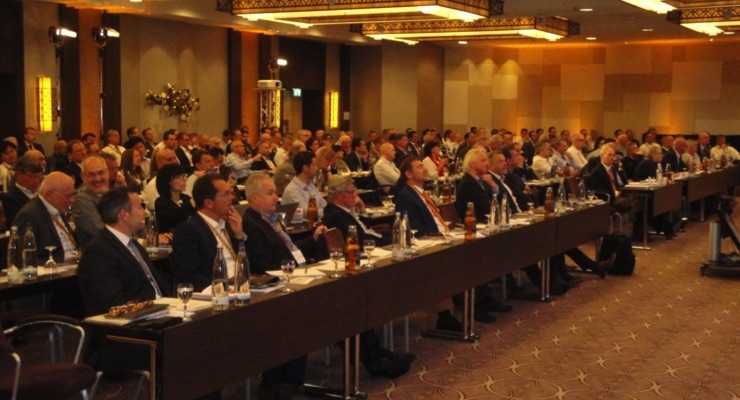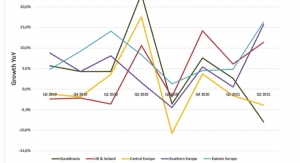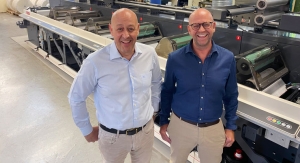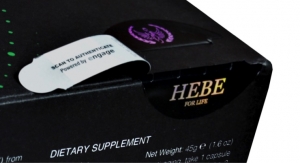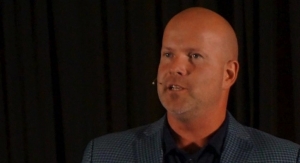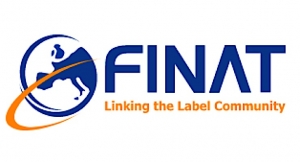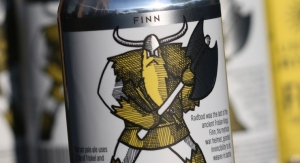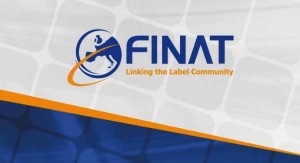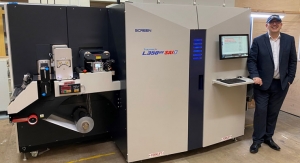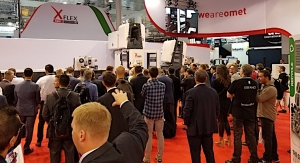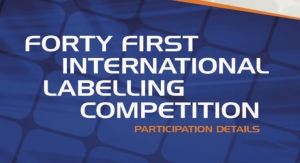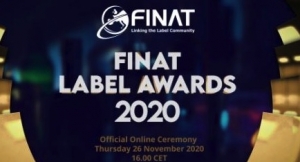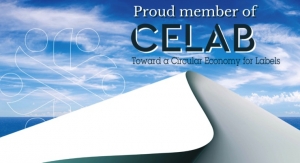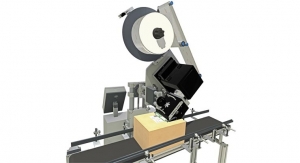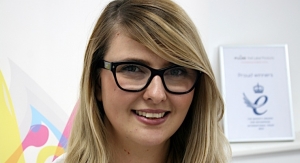John Penhallow06.20.17
Once a year, the Great and Good of the European label business meet to learn, listen and network. This year the FINAT European Label Forum (ELF) was in Berlin, Germany. L&NW was on hand to record the highlights, some of which were not even loosely connected to the label industry.
Time to Stragilitate
Stragility is described as “the art of strategic, agile, people-powered change." Retiring FINAT president Thomas Hagmaier took it as his theme at the opening of the event. The label business in Europe is looking and feeling rather chipper after many years of austerity and squeezed margins. Hagmaier insisted on the continued need for agility, in particular with regard to the digital revolution. FINAT has now completed a "Digital Label Study" now available to members, and the program of the two-day Berlin event was in part given over to digital technology in the widest sense, including "Industry 4.0", artificial intelligence and the Internet of Things.
As for people-powered change, Hagmaier pointed to the regular meetings of the FINAT young Managers’ Club. On the debit side he noted the acute shortage of skilled young people coming into the label industry. More and better training programs and apprenticeships were the answer, he said, but even in Germany – so often held up as a model for youth training – label converters could not recruit enough apprentices. With regard to the age profile of the industry Hagmaier could have added (but didn’t) that the assembled 250 delegates were disproportionately gray haired and male. He rounded off his opening speech by touching on the problem and opportunities of digital label printing, and new ‘Corporate Identity’ of FINAT, promising more on both topics later in the program.
State of the Federation
FINAT now sports a refurbished website and a new logo. Membership at 550 corporate members is stable, despite the shrinkage factor of acquisitions. Fully 60% of members are label converters, but this was not reflected in the attendance at the Forum where well over half the delegates were suppliers. The treasurer reported a nice balance between income and expenditure, largely thanks to the very substantial sum contributed by Tarsus every other year for the partnership before and during Labelexpo Europe. Outgoing president Hagmaier put in a plea for more volunteer work by members “Our technical, marketing and other commissions cannot function if we don’t have more people prepared to contribute actively”.
Digital developments
An Anglo-American double act was presented by Jennifer Dochstader and David Walsh, founding partners of research body LPC. According to their interviews with over 100 European label converters, 25% of companies are already using digital inkjet, but a surprising 48% said their next press would be inkjet. Interestingly, Germany is a stronghold of toner-based digital label printing, while the French and the Brits prefer inkjet. Top marks must go to this duo for holding the audience’s interest in such a tough subject.
And this year’s winner is…
The FINAT label competition has been going for 39 years, and for most of that time organized by its voluble and fast-talking compere Tony White. This year’s winners went from RFID and product authentication tags through "sparkly" labels on girls’ cosmetics, whiskey labels printed on a wood veneer, and booklet labels for engine parts.
Best of Show went to UK converter Royston Labels for a particularly imaginative wine label. With an ever-expanding number of entries, and winners, the format of the prize giving could be improved (maybe the Cannes film festival could give some ideas).
A disruptive technology
Organizers of label get-togethers do not often invite speakers to elaborate on alternative technologies. But Corey Reardon of AWA did just that. His theme was "disruptive technologies," and specifically the disruptive effect of direct printing on beverage bottles. Leading equipment manufacturers like Krones and KHS are now near to launching competitive filling lines incorporating direct inkjet printing.
With no liner waste – in fact, no material usage at all apart from the ink – direct digital printing could offer big cost savings. At present speeds are slow, the inks are expensive and the capital investment is high. But all this, according to Reardon, is beginning to change, and as run lengths become shorter, digital direct printing could soon start eating away at other decoration technologies, not just in the beverage sector but also in cosmetics and food. An unappetizing thought for label converters.
Fischer catches attention
FINAT tries to get a prominent public figure as closing speaker at the Forum. This year the former vice-chancellor of Germany, Joschka Fischer could, and did, give some forthright views on most of Europe’s burning political issues. The Brexit negotiations have so far been “chaotic,” he said, and the June election left Britain “weak and unstable."
French president Macron gets Fischer’s seal of approval, not so Turkey’s Mr. Erdogan. With a small sigh he predicted that come September, Angela Merkel would be re-elected. Echoing President Trump, Fischer wants Europe to spend more on security and defense; some of his other opinions on the current occupant of the White House were less complimentary.
Time to speculate
Traditionally, the annual FINAT ELF event ends with the new president announcing “And next year’s Forum will be held in..." This year it didn’t. Rumor has it that the 2018 venue was to have been London, but that now other options are being studied. One wonders why. After all, 2018 could be the last year for Europeans to travel visa-free to the UK. There is speculation that the venue to be chosen could be the capital of another offshore island.
Time to Stragilitate
Stragility is described as “the art of strategic, agile, people-powered change." Retiring FINAT president Thomas Hagmaier took it as his theme at the opening of the event. The label business in Europe is looking and feeling rather chipper after many years of austerity and squeezed margins. Hagmaier insisted on the continued need for agility, in particular with regard to the digital revolution. FINAT has now completed a "Digital Label Study" now available to members, and the program of the two-day Berlin event was in part given over to digital technology in the widest sense, including "Industry 4.0", artificial intelligence and the Internet of Things.
As for people-powered change, Hagmaier pointed to the regular meetings of the FINAT young Managers’ Club. On the debit side he noted the acute shortage of skilled young people coming into the label industry. More and better training programs and apprenticeships were the answer, he said, but even in Germany – so often held up as a model for youth training – label converters could not recruit enough apprentices. With regard to the age profile of the industry Hagmaier could have added (but didn’t) that the assembled 250 delegates were disproportionately gray haired and male. He rounded off his opening speech by touching on the problem and opportunities of digital label printing, and new ‘Corporate Identity’ of FINAT, promising more on both topics later in the program.
State of the Federation
FINAT now sports a refurbished website and a new logo. Membership at 550 corporate members is stable, despite the shrinkage factor of acquisitions. Fully 60% of members are label converters, but this was not reflected in the attendance at the Forum where well over half the delegates were suppliers. The treasurer reported a nice balance between income and expenditure, largely thanks to the very substantial sum contributed by Tarsus every other year for the partnership before and during Labelexpo Europe. Outgoing president Hagmaier put in a plea for more volunteer work by members “Our technical, marketing and other commissions cannot function if we don’t have more people prepared to contribute actively”.
Digital developments
An Anglo-American double act was presented by Jennifer Dochstader and David Walsh, founding partners of research body LPC. According to their interviews with over 100 European label converters, 25% of companies are already using digital inkjet, but a surprising 48% said their next press would be inkjet. Interestingly, Germany is a stronghold of toner-based digital label printing, while the French and the Brits prefer inkjet. Top marks must go to this duo for holding the audience’s interest in such a tough subject.
And this year’s winner is…
The FINAT label competition has been going for 39 years, and for most of that time organized by its voluble and fast-talking compere Tony White. This year’s winners went from RFID and product authentication tags through "sparkly" labels on girls’ cosmetics, whiskey labels printed on a wood veneer, and booklet labels for engine parts.
Best of Show went to UK converter Royston Labels for a particularly imaginative wine label. With an ever-expanding number of entries, and winners, the format of the prize giving could be improved (maybe the Cannes film festival could give some ideas).
A disruptive technology
Organizers of label get-togethers do not often invite speakers to elaborate on alternative technologies. But Corey Reardon of AWA did just that. His theme was "disruptive technologies," and specifically the disruptive effect of direct printing on beverage bottles. Leading equipment manufacturers like Krones and KHS are now near to launching competitive filling lines incorporating direct inkjet printing.
With no liner waste – in fact, no material usage at all apart from the ink – direct digital printing could offer big cost savings. At present speeds are slow, the inks are expensive and the capital investment is high. But all this, according to Reardon, is beginning to change, and as run lengths become shorter, digital direct printing could soon start eating away at other decoration technologies, not just in the beverage sector but also in cosmetics and food. An unappetizing thought for label converters.
Fischer catches attention
FINAT tries to get a prominent public figure as closing speaker at the Forum. This year the former vice-chancellor of Germany, Joschka Fischer could, and did, give some forthright views on most of Europe’s burning political issues. The Brexit negotiations have so far been “chaotic,” he said, and the June election left Britain “weak and unstable."
French president Macron gets Fischer’s seal of approval, not so Turkey’s Mr. Erdogan. With a small sigh he predicted that come September, Angela Merkel would be re-elected. Echoing President Trump, Fischer wants Europe to spend more on security and defense; some of his other opinions on the current occupant of the White House were less complimentary.
Time to speculate
Traditionally, the annual FINAT ELF event ends with the new president announcing “And next year’s Forum will be held in..." This year it didn’t. Rumor has it that the 2018 venue was to have been London, but that now other options are being studied. One wonders why. After all, 2018 could be the last year for Europeans to travel visa-free to the UK. There is speculation that the venue to be chosen could be the capital of another offshore island.

